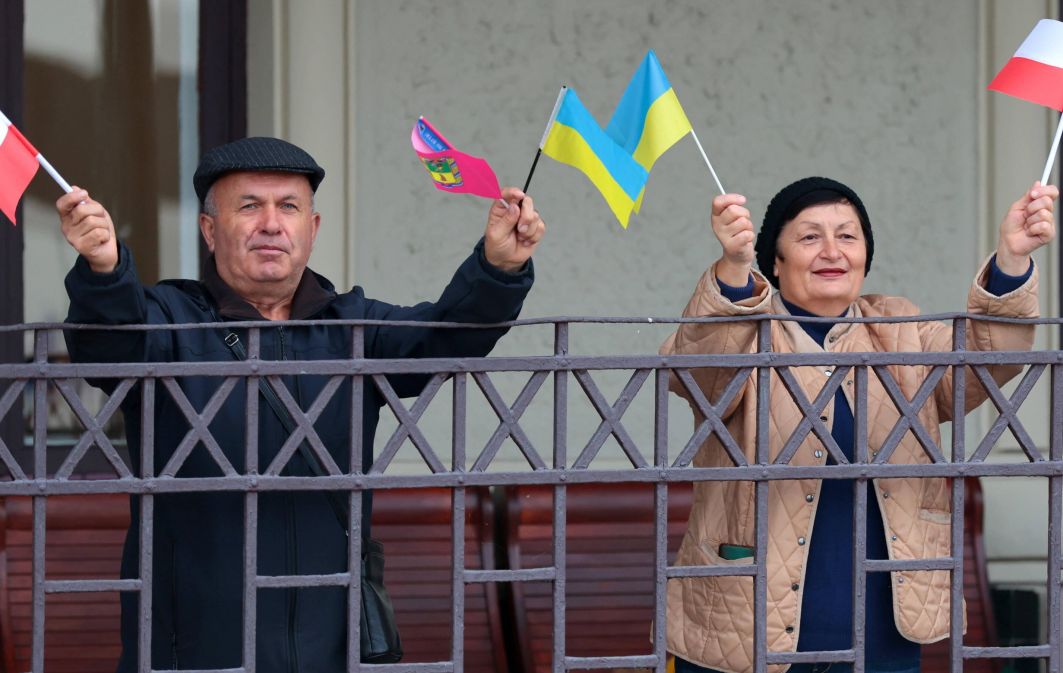Only the crisis of June 1976 breathed wind into their sails. We are used to the fact that the democratic opposition collected signatures for open letters, while such practices also occurred on the other side of the political barricade. The “Letter of 2000", the originator of which was, among others, Ryszard Gontarz, a leading propagandist in 1968, ostensibly expressed opposition to the existence of the Workers' Defense Committee, but in fact he attacked Gierek's team, which he knew perfectly well. Hardliners were allegedly worried about the emergence of a democratic opposition, but thus pointed to Gierek as responsible for the emergence of KOR and tolerating it. During the Solidarity era, the senders of the “Letter of 2000" largely joined the Grunwald Patriotic Union.
The personalities of dogmatists in the times of the late Polish People's Republic remain anonymous today.
At that time, the faces of power were primarily generals Wojciech Jaruzelski, Czesław Kiszczak and Florian Siwicki. The PZPR was pushed into the background during martial law. The anger of Poles was focused on by government spokesman Jerzy Urban, who was not even in the party. His cynical statements to the media earned him the reputation of a scoundrel. Dogmatists had influence in the party structures, but Jaruzelski quite consistently got rid of them, which was called "distributing". Some he "promoted," which often meant being sent to government or diplomacy. This was the fate of Albin Siwak, who, pretending to be the voice of workers, criticised the moves of the party authorities.
This author of memoirs entitled "From shovel to diplomat" wins the strongly contested competition for the stupidest dignitary of the People's Republic of Poland?
I'm not sure if "stupidest" is the best word - after all, he had some political sense, since he made it to the Politburo. It is true that his language was quite simple and the theses he formulated were downright vulgar. At the same time, he was able to express in words some feelings and longings of some party activists. In a way, he portrayed himself as the anti-Wałęsa, and he probably did it effectively. He presented himself as an ordinary worker, although he became a party notable.
Did the women comrades also had concrete minds?
Unfortunately, from a marketing point of view, when women's stories are fashionable today, party concrete is a disappointment. We had very few women at the top of power in the Polish People's Republic, and there were even fewer of them among hardliners. While before 1956 they were exposed in various spheres of public life, later top-down promotion was abandoned. If they did appear, it was rather in the roles of publicists who attacked the liberal intelligentsia or rebellious students in the press.
Was Alfred Miodowicz the last hardliner of an “era that is rightly gone”?
The problem is that from December 13, 1981, the party concrete was in a losing position. It completely lost its power when Mikhail Gorbachev came to power in Moscow. But this does not mean that the conservative trend in the party has disappeared. Urban described it quite accurately. According to him, the average provincial secretary did not consider himself a concrete person at all, he would even like something to change for the better, as long as it was not at his expense. However, each innovation had to mean weakening the party apparatus, which is why these local leaders opposed them - especially talks with the opposition. Thus, they unconsciously became "concrete", although certainly very few heads of the provincial party committees in the 1980s had ever read Marx's "Das Kapital", the works of Engels or Lenin.
Miodowicz was not a tough guy like Moczar. He opposed talks with the opposition in order to prevent Solidarity from coming to power. He was the first to say that the Round Table was an agreement between the elites - the party and the opposition - over the heads of ordinary people.
Andrzej Brzeziecki – writer and publicist, graduate of the Faculty of History of the Jagiellonian University. Author of: "Belarus. Potatoes and jeans", "Armenia. Caravans of Death", "Lukashenko. The would-be Tsar of Russia" (all with Małgorzata Nocuń) and "Czerniawski. The Pole who deceived Hitler", "Major Żychoń's great game", "Ostróda'46. How Poles defeated the Soviets" and the latest "Concrete Mind. The history of hard-line comrades from the Polish United Workers' Party.
– interview by Tomasz Zbigniew Zapert
TVP WEEKLY. Editorial team and jornalists
-translated by Maciej Sienkiewicz 






